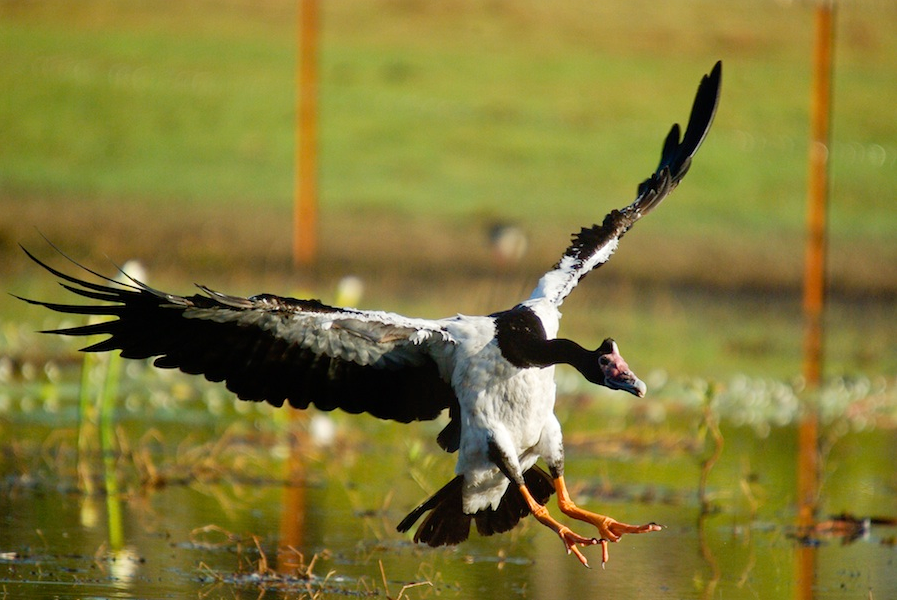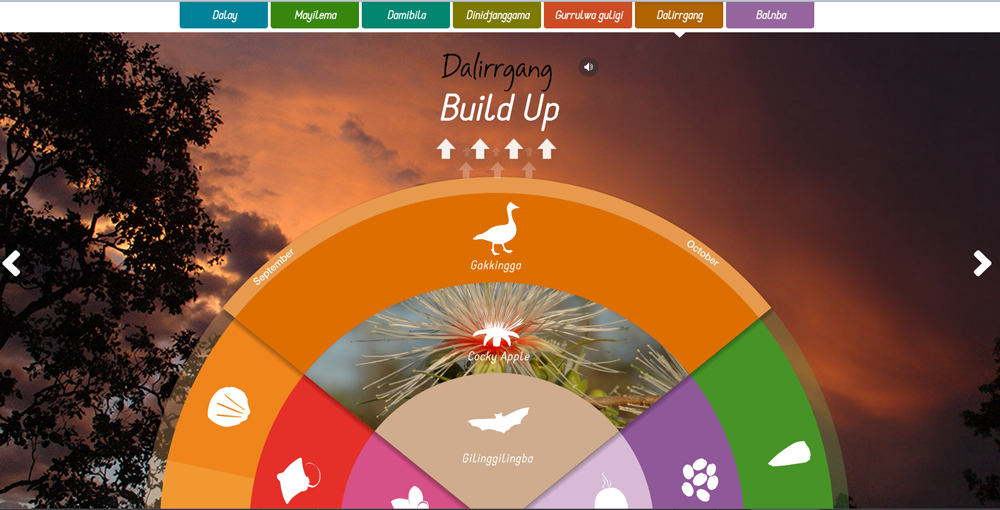To us city dwellers the start of spring marks a season of new beginnings, spring cleaning and often, hay fever. The days become longer and we happily defrost after the chill of winter. But as our supermarkets beckon to our every need, many aren’t quite sure of what fruit or vegetables are really in season.
To others who live in regional areas, or are simply more in tune with the land, seasonal changes are essential knowledge. Spring in the Northern Territory marks the impending wet season and cyclone preparation. For Larrakia people in the Darwin region, September brings the Dalirrgang season, or Build Up. In the Dalirrgang season the Cocky Apple drops a carpet of white flowers; their sweet scent signals the build-up to the wet season has arrived. Freshwater mangrove fruit signifies it’s time to hunt Gakkingga (Magpie Goose).
September marks the beginning of Dalirrgang season, where Magpie Goose are a meal for some.
For the first time, detailed Aboriginal seasonal knowledge of the Darwin region has been converted into an interactive online educational resource. Researcher Emma Woodward said many Aboriginal people are concerned about the loss of their knowledge, while at the same time there is strong demand from schools for more traditional ecological information.
The interactive Larrakia calendar. In September and October the Cocky Apple drops a carpet of white flowers; their sweet scent signals that the build-up to the wet season has arrived.
The online Larrakia calendar shows seven seasons in an annual cycle of climatic and ecological understanding. Emma said the Larrakia calendar could also be used to monitor future environmental change. “Aboriginal people have a deep understanding of complex connections in the environment. Their observations have revealed relationships and links between plants, animals, water and climate that we weren’t aware of before”.



